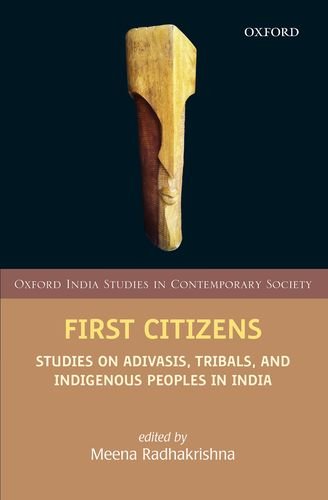Rarely does one come across a work of serious social science dealing with the phenomenon of inequality which is not ‘overly theoretical’ (to use one scholar’s phrase), and yet accurately describes that elephant in the room. The authors and editor of First Citizens: Studies on Adivasis, Tribals, and Indigenous Peoples in India are none of them blind men or women as in the fable, but clear-eyed economists, historians, and sociologists.
This volume of fifteen essays on a significant segment of India’s poor (8.6%, or 104,281,034 persons) is a many-veined narrative about what really weighs upon the heart of modern Indian democracy. It is the reality of ever-evolving forms of inequity, against a backdrop of patchy ‘development’. With Meena Radhakrishna’s introduction and an epilogue, as well as an informative appendix of the relevant laws, the book as a whole presents a coherent argument for the meaningful inclusion of these ‘first inhabitants’ as equal citizens of the Republic.
It is not politically correct yet to openly deny them that status, but an assumption, often unspoken, has been gaining ground that the egalitarian position is not justiciable, and cannot be allowed to stand in the way of the nation’s economic ‘growth’—never mind if such ‘growth’ is not reflected in the well-being of these vulnerable sections.

